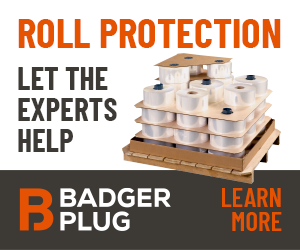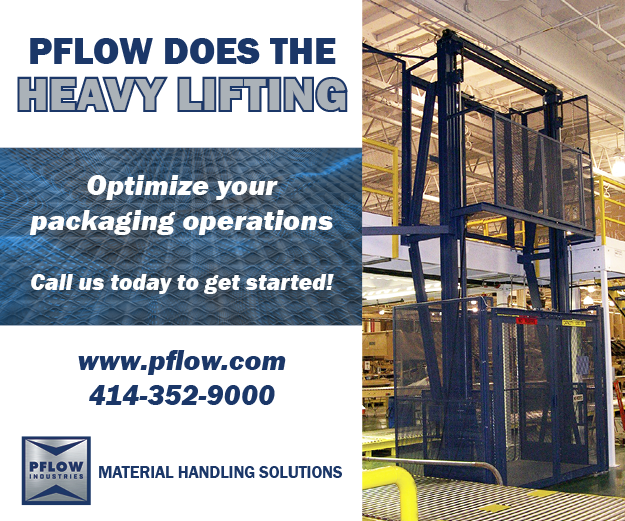Sale Leasebacks Offer Packagers Growth Capital
By Dave Rosenberg, Principal, SLB Capital Advisors
Many corners of the packaging industry have experienced sizeable growth over the last few years, fueled in part by the pandemic’s acceleration of e-commerce activity. Meanwhile, Bain reports that demand for sustainable packaging is also increasing as consumers seek more eco-friendly options, requiring packagers to explore new raw materials and designs that minimize environmental impact.
According to Boston Consulting Group, e-commerce is expected to grow at a 9% compound annual growth rate (CAGR) through 2027 and to capture 41% of global retail sales by 2027. Large consumer brands are also expected to continue outsourcing packaging services, with environmental, social and corporate governance (ESG) programs continuing to focus on sustainability. The packaging industry is riding favorable tailwinds.
Taking advantage of these opportunities and keeping up with the packaging industry’s ever-changing landscape will require significant capital. However, higher interest rates and tighter lending conditions have made it difficult for many packaging companies to fund growth initiatives.
Amid a reticent banking and bond market, sale leaseback transactions can provide a ready source of capital.
Unwrapping sale leasebacks
A sale leaseback is the sale of an underlying facility to an institutional investor and a simultaneous leaseback with that investor under a long-term lease. The transaction allows operators to free up capital that is tied up in real estate and redeploy it to invest in the business. Common uses of proceeds include funding growth opportunities such as investing in cutting-edge machinery, financing research and development for sustainable materials, bolstering working capital, or simply paying down higher-cost debt.
A sale leaseback is particularly apt for packaging manufacturers since many operators own the real estate their facilities stand on. However, there is more to raising capital in a sale leaseback transaction than just owning a commercial property. Sale leaseback investors are generally “credit-first” investors, looking for a predictable income stream and therefore evaluate tenants on their ability to fulfill the obligations of a long-term lease. A key component of an investor’s evaluation is the health of the underlying business, recent performance, and growth potential. A strong balance sheet that can withstand performance variances is crucial in obtaining a premium valuation in a sale leaseback transaction.
While many company executives may be familiar with sale leasebacks, they may not be fully aware of its nuances. A common concern among strategic owners is the idea of giving up control of a facility that is considered a core part of their business. However, entering a sale leaseback transaction does not mean relinquishing control of the asset. In fact, there are several levers that can be pulled to ensure operators retain control over their facility.
One of these levers is the lease term. A typical sale leaseback term spans 15-20 years, with options for multiple 5- or 10-year renewals, ultimately granting the company effective control over the asset for 35 to 40 or more years. Other levers include the base rent, rent increases, and change of control provisions that do not obstruct an eventual exit or sale of the business, among others.
Unlike typical real estate transactions where the location of the property is a key factor in determining valuation, sale leasebacks are more strongly dependent on the underlying credit of the firm. This means industrial properties such as packaging facilities, which may be commonly located in remote areas, can still obtain attractive pricing as long as the underlying business is strong and healthy.
Among property types, industrial properties have been a very active asset class, benefiting from headwinds in the commercial office and retail markets. Over recent years, industrial properties have accounted for roughly half of all sale leaseback transactions. In the third quarter of 2023, industrial properties accounted for 45% of all sale leaseback transactions.
Opportunities in the Packaging Industry
The sale leaseback market remains strong, with 157 transactions executed in the 3rd quarter of 2023, relatively in line with previous quarters. By transaction count contribution, industrial properties exhibited a pickup from the previous quarter, comprising 45% of all transactions.
From a corporate finance perspective, the recent increase in traditional debt financing rates makes sale leasebacks an attractive financing alternative on a cost of capital basis. Over the last 18-24 months, while the cost of many forms of debt financing has risen materially, the average cost of sale leaseback financing has been more muted.
For packaging companies looking to keep up with increasing demand and evolving technologies, unlocking capital tied up in real estate through a sale leaseback might just be the key.
About the Author
Dave Rosenberg, CFA is a Principal at SLB Capital Advisors, which advises corporate and private equity sponsors on a wide range of sale leaseback transactions. Rosenberg has over 14 years of investment banking and sale leaseback experience, having advised clients on a broad array of transactions, including company sales, capital raises, recapitalizations, and assisting clients with acquisitions of target companies. Learn more at https://slbcapitaladvisors.com/team/









